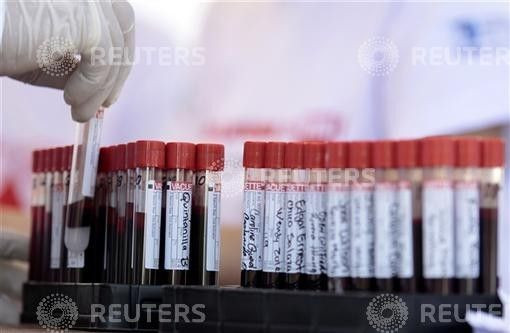Newly Discovered Blood Types May Aid Cancer Research
There are 32 Known Blood Types

Two newly discovered blood proteins may aid in cancer research, and the discovery of proteins ABCB6 and ABCG2 were the first new types found in a decade. Many people may know of common blood types A, B and O, but there are many other ways blood is categorized, particularly when it comes to its compatibility with other types. Some people are type A, but also Rhesus positive and with a particular Junior blood type, for example. Junior blood types and another type called Langeresis, had not been fully understood until the discovery of the new proteins, new research published in the February issue of Nature Genetics, reported.
There may even be more of these unknown blood types, though they are very rare. Researchers are working on the problem because if someone with one of these rare types does need a transfusion, an improper match would be rejected and could be very harmful if given. As an added bonus, the newly discovered proteins may be able to fight against anticancer drug resistance, a common problem among many modern medicines.
With the new research available, it will not only be easier to find matches for those who need donated blood, it will be easier to find out who has the Junior and Langeresis types in the first place. The International Blood Transfusion Society has documented 28 blood types besides the ABO and Rhesus types. They have names like Diego, Kidd and Lutheran, but Junior and Langeresis were missing because their genetic roots had been unknown until now. This is important for blood donations, but also for organ transplants.
"We don't always know why there is rejection," University of Vermont biologist Bryan Ballif told ScienceDaily.com.
"But it may have to do with these proteins."
Two distinct populations with some concentrations of the Junior and Langeresis blood types are certain Japanese populations and some European Gypsies.
© Copyright IBTimes 2025. All rights reserved.





















